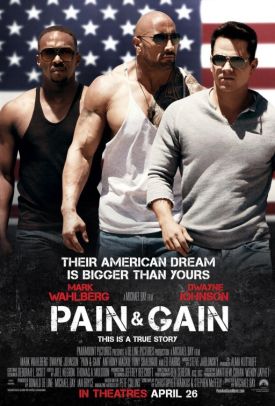Bossa Nova
Bossa Nova, an adaptation of a story by Sérgio Sant’Anna (“A Senhorita Simpson”) by the Brazilian director Bruno Barreto, seems to have been conceived as a vehicle for the latter’s wife, the former Mrs. Steven Spielberg, Amy Irving. She plays Mary Anne, an American widow living in Rio and teaching English to upwardly mobile Cariocas, who finds love with a handsome Brazilian lawyer, Pedro Paolo (Antônio Fagundes). Around this couple swirls the sexy, self-indulgent life of the city where the hopefulness of love, if not love itself, seems to be in the air for everybody. The laid-back life of Rio by the sea-o is evident in everything from the character who confidently announces that “I don’t defend universal truths, only my own truths” to the joke made by Pedro Paolo about his soon-to-be ex-wife’s Japanese lover that she must have been attracted to him because he would engage in “perverted acts” with her: “Don’t let him tie you up,” he warns; “these people will steal the furniture.”
You wouldn’t get away with a “racist” joke like that in the up-tight USA, and the relaxation that makes it permissible in the land of the samba is not the least attractive thing about the place. Add the music (Antonio Carlos Jobim, with François Truffaut, is the film’s co-dedicatee) and a real sense of style, and there is a lot to like here. Where else but in a Brazilian film would the leading man, a portly, white-haired lawyer in his 50s, win the heart of the 40- something leading lady by making her a blouse with his own hands? The scene in an elevator where he surreptitiously takes her measurements with his fingers is particularly memorable. As his father, Juan (Alberto de Mendoza), the master tailor from whom he has learned this useful seduction technique, puts it: “In this age of jeans and t-shirts, women don’t look for elegance anymore, only money.” Well, we find that some women still prefer elegance.
This old man, who has had a different wife in every decade of his adult life, is in a way the hero of the film, though he hardly appears in it. He seems to stand for the Brazil of soft tropical nights and seduction, of the carioca and the bossa nova (hence the title) and Flying Down to Rio (1933) rather than the grim and politicized Brazil of Four Days in September (1997), Mr. Barreto’s previous film. But the charm of that older Brazil always depended on its being an alternative to the more buttoned-up world outside it. It was a place of special indulgence, as much by nature as by man, where the usual rules were suspended—even to the point of providing a safe haven for criminals. Of this Brazil, or at least of the idea of it, we might say as Burke said of the ancien régime in France, that vice lost half its evil by losing all its grossness.
But although some of the old Brazilian sense of style obviously survives in vestigial form, we are reminded throughout that its uniqueness as a place where sexual and other rules have been relaxed by special grace is long gone. Mary Ann’s assistant and confidante, Nadine (Drica Moraes), has an affair with an American corporate lawyer (Stephen Tobolowsky) she met in an Internet chat room, and Pedro Paolo’s young intern, Sharon (Giovanna Antonelli), rejects the gentle attentions of her employer’s half-brother, another tailor called Roberto (Pedro Cardoso), to become a groupie with a soccer hero (and pupil of Mary Ann’s) called Acacio (Alexandre Borges). He is defecting from Brazil to play in the English Football League for more money. All that’s left is the music to remind us of the old dream of Brazil as a place apart—and at a key moment even the music becomes not Brazilian but French, Charles Trenet’s “Que reste-t-il de nos amours?” (familiar to Americans as the tune of “I Wish You Love”). Brazil itself, it seems, has now become one of those lost loves that survives only as a bittersweet memory.
Discover more from James Bowman
Subscribe to get the latest posts to your email.







